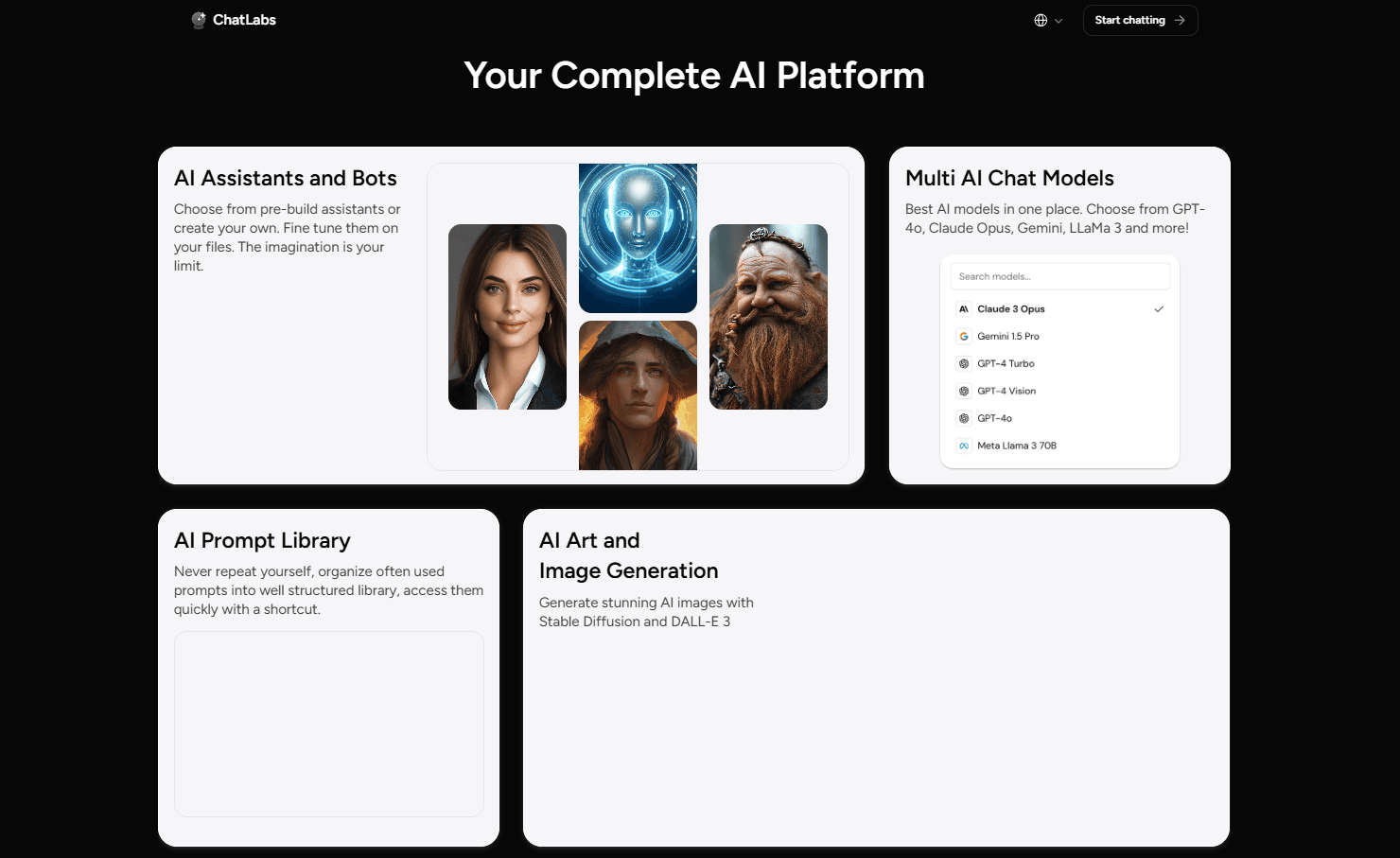The world of AI is exploding. New technologies are emerging every day, and with them come exciting new job opportunities. One of the most intriguing is the role of the AI Prompt Engineer. This guide will help you understand what a prompt engineer does. It will also explain how to become one. And, what the future holds for this fast-growing profession.
Who (Really) is a Prompt Engineer?
Imagine you're talking to a powerful AI, like ChatGPT or Bard. You want it to write a poem, translate a document, or create a marketing campaign. To get the best results, you need to give the AI the right instructions. That's where the prompt engineer comes in.
A prompt engineer is a specialist who crafts and refines the prompts that guide AI models. They are the bridge between human intentions and the complex world of artificial intelligence. Their job is to ensure the AI outputs are accurate, relevant, and contextually appropriate.

The Growing Demand for AI Prompt Engineers
The demand for skilled prompt engineers is skyrocketing. Why? Because AI is being used in more and more industries, from healthcare to finance to education.
Businesses need AI to be effective. Companies want to use AI to automate tasks, improve customer service, and gain insights from data. But for AI to be successful, it needs clear and precise instructions.
Users want AI to be user-friendly. People want to interact with AI easily and get the information they need quickly. Prompt engineers help make this happen.
AI is becoming more sophisticated. As AI models become more complex, they require more sophisticated prompts to unlock their full potential.
I recommend to watch a short video by Google on that topic, there are some useful tips and steps there as well.:
How to Become an AI Prompt Engineer
Becoming a prompt engineer isn't about memorizing a specific set of rules. It's about developing a unique set of skills and a deep understanding of how AI works.
1. Build a Strong Foundation in AI
Start by understanding the basics of AI and machine learning. Take online courses on platforms like DataCamp or Coursera. Focus on topics like:
Machine Learning: Learn about algorithms like linear regression, decision trees, and neural networks.
Natural Language Processing (NLP): This is crucial for working with text-based AI models. Learn about topics like text classification, sentiment analysis, and machine translation.
2. Learn Prompt Engineering Techniques
Prompt engineering is a craft. It's about understanding how AI models think and then crafting prompts that guide them to produce the desired output. Here are some key techniques:
Specificity: Be clear and concise in your prompts. Avoid ambiguity.
Context: Provide the AI with relevant background information.
Examples: Show the AI what you want by providing examples of the desired output.
Iteration: Don't be afraid to experiment and refine your prompts. The best prompts are often the result of trial and error.

3. Gain Hands-On Experience
The best way to learn prompt engineering is by doing it. Here are some ways to gain practical experience:
Use online platforms: Platforms like OpenAI (ChatGPT) and Google AI (Bard) provide free access to powerful AI models. Experiment with different prompts and see how the outputs change.
Join online communities: There are many online communities dedicated to prompt engineering. Connect with other practitioners, share your work, and learn from their experiences.
Take on projects: Look for opportunities to use prompt engineering in real-world projects. This could involve making AI-powered chatbots. It could also involve automating content creation. Or, it could involve building personalized AI assistants. Whatever you want - and whatever has a demand in a current day and age.
4. Develop Key Skills
Successful prompt engineers possess a unique blend of skills. One of the mostimportant is… Analytical Thinking! Let's see how to develop it yourself and how to swiftly improve it.
Yes, to harness the full potential of AI, you must develop the crucial skill of analytical thinking. This involves carefully examining AI-generated outputs. But also, it's about wide erudition, creativity and being able to focus on a certain topic while having related topics or subjects in mind. It is to find flaws and identify areas that need improvement. Think of it as being a detective. You carefully scrutinize the evidence to find clues. They can lead to big breakthroughs.
For instance, when analyzing AI outputs, ask yourself: Are the results biased? Are there any inconsistencies or anomalies? Do the findings align with your expectations? By asking these questions, you'll find the root causes of errors. You can then refine your AI models to make better and more reliable results.
To illustrate this, consider facial recognition systems. They often struggle to identify people of color or women. Analytical thinking helps you find this bias. It lets you make changes to ensure the AI model is more inclusive. It also helps it recognize diverse faces.
Effective analytical thinking also involves considering the bigger picture. Ask yourself: What are the implications of these results? How can they be applied in real-world scenarios? What are the potential consequences of relying solely on AI-generated outputs? By pondering these questions, you'll think clearly. Then, you can make informed choices. They will drive meaningful change.
In essence, analytical thinking is the bridge that connects AI outputs to tangible solutions. By mastering this skill, you'll unlock AI's true potential. You'll also drive innovation that changes industries and betters lives.
What are some other skills you may need?
Programming Skills: Proficiency in languages like Python is essential for interacting with AI models.
Creativity: Crafting effective prompts often requires thinking outside the box and anticipating how the AI will respond.
Communication Skills: You need to be able to communicate your ideas clearly and effectively to both technical and non-technical audiences.

5. Build a Prompt Library
A prompt library is a collection of pre-designed prompts that you can reuse across different projects. This makes the engineering process faster. It ensures that AI interactions are consistent. And, it makes it easier to update and maintain prompts.
By the way, did you know that Chat Labs not only has all top AI models built into it. It also has a built-in prompt library that you can create and use swiftly with hotkeys. That can help to save you time and be a very efficient way to create, improve and build up your prompt engineering.
Try out Writingmate here: https://writingmate.ai. I think it is a good aid both for beginner and more advanced prompt engineers.

6. The Future of Prompt Engineering
The future of prompt engineering is bright. As AI continues to advance, the role of prompt engineers will become even more critical. They will be at the forefront of developing more sophisticated and user-friendly AI systems.
7. Remote Opportunities in Prompt Engineering
The demand for AI prompt engineers is global, with many companies offering remote positions. This flexibility lets you work from anywhere. It makes the job attractive to many. It is one of the jobs that usually does not require you being in an office. What's more, there are different ways to work. You may be a 9-5 worker, online or not, or you can be more of a freelancer. And when you gain some experience, you may even do a sufficient and valuable business based on those skills.
8. Enhance Your Skills and Simplify the Process
Platforms like Writingmate offer tools to improve your prompt engineering skills. Our platform supports all top AI models. These include GPT-4, Claude, and LLaMa. They let you experiment and improve your prompts. Additionally, Writingmate can help you build custom assistants. What's more, you can also generate images with simple prompts, in a couple of clicked. This may further boost your abilities as a prompt engineer and let you do more in a shorter amount of time.
A Very Brief Conclusion
Becoming an AI prompt engineer seems to be getting more rewarding career path with each week, month and year. But it also has its challenges. You can become an expert in this field by gaining the right skills and practical experience, choosing appropriate tools and finding people and companies that will value those skills. There is now a growing demand, and I also believe that we'll see an increase in that demand.
For detailed articles on AI, visit our blog that we make with a love of technology, people and their needs. I've also referenced our solution, Writingmate, because it will also be helpful on that path and overall. Try it out.
Written by
Artem Vysotsky
Ex-Staff Engineer at Meta. Building the technical foundation to make AI accessible to everyone.
Reviewed by
Sergey Vysotsky
Ex-Chief Editor / PM at Mosaic. Passionate about making AI accessible and affordable for everyone.



